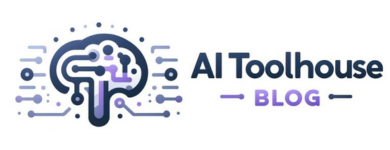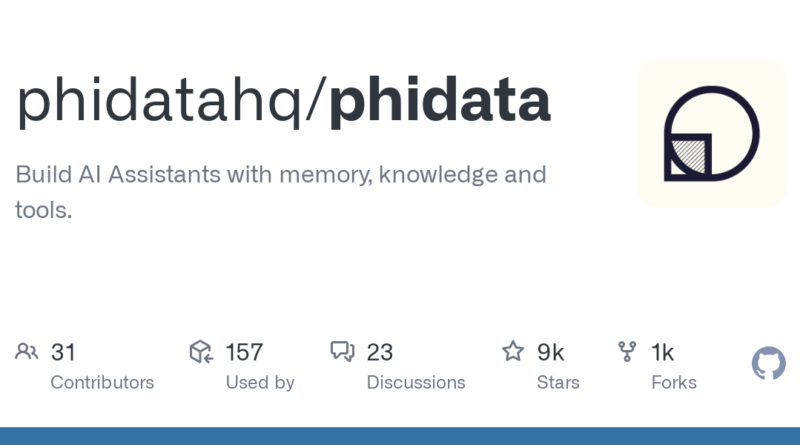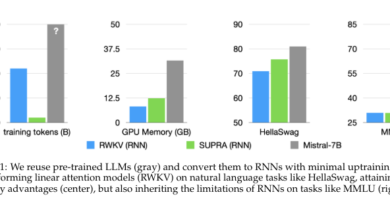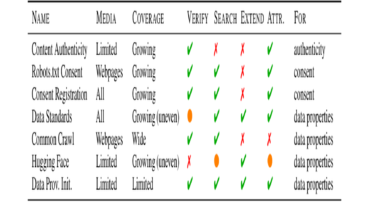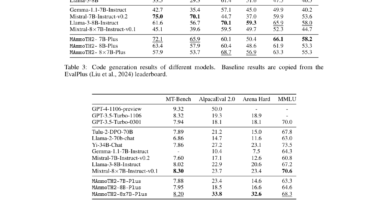Enhancing AI Assistants: Phidata’s Breakthrough in Long-Term Memory and Function Calling
In today’s fast-paced world, artificial intelligence (AI) has become an integral part of our lives. From virtual assistants to chatbots, AI technologies have revolutionized the way we interact with computers and machines. However, traditional AI models, such as large language models (LLMs), have certain limitations that hinder their ability to provide consistent and context-aware responses. They often lack long-term memory, contextual knowledge, and the ability to perform actions autonomously.
To address these issues, a groundbreaking AI framework called Phidata has been developed. Phidata is specifically designed to build autonomous assistants that overcome the limitations of traditional LLMs by integrating long-term memory, contextual knowledge, and the ability to take actions using function calling. Let’s delve deeper into the features and benefits of Phidata.
The Limitations of Traditional LLMs
Large language models have gained significant popularity due to their ability to generate coherent and contextually relevant text. However, they lack the capability to remember long-term conversations, which limits their effectiveness in providing consistent responses. Additionally, traditional LLMs cannot perform actions like sending emails or querying databases on their own, resulting in a restricted range of functionalities.
Introducing Phidata: An AI Framework for Autonomous Assistants
Phidata is a cutting-edge AI framework that aims to enhance the capabilities of autonomous assistants. By integrating long-term memory, contextual knowledge, and the ability to take actions using function calling, Phidata enables assistants to provide more reliable and context-aware responses, as well as perform a wide range of tasks autonomously.
Long-Term Memory
One of the key features of Phidata is its ability to maintain long-term memory. Unlike traditional LLMs that often forget conversation history once the session ends, Phidata stores chat histories in a database, allowing assistants to recall past conversations and provide consistent and contextually relevant responses. This feature significantly improves the conversational experience and enables assistants to understand user preferences and tailor their responses accordingly.
Contextual Knowledge
Phidata leverages a vector database to store information, giving assistants a deep understanding of specific contexts. This contextual knowledge enables assistants to provide more accurate and personalized responses based on the user’s unique requirements. Whether it’s understanding industry-specific jargon or providing domain-specific recommendations, Phidata-equipped assistants exhibit a higher level of intelligence and adaptability.
Actionable Tools
Another distinguishing feature of Phidata is its ability to perform actions using function calling. This means that Phidata-equipped assistants can interact with external systems, such as APIs or databases, and perform tasks like pulling data, sending emails, or executing specific functions. This opens up a whole new realm of possibilities for autonomous assistants, enabling them to carry out complex tasks without the need for human intervention or extensive programming knowledge.
Real-World Applications of Phidata
Phidata has the potential to revolutionize various industries by providing more capable and intelligent autonomous assistants. Here are a few examples of how Phidata can be employed in real-world scenarios:
AI-Powered Research Assistant
With Phidata, it is possible to create an AI-powered research assistant that can generate detailed reports by analyzing data from various sources. This assistant can sift through vast amounts of information, extract relevant insights, and provide comprehensive research findings. This application of Phidata can greatly streamline research processes and enhance productivity in fields such as finance, healthcare, and academia.
Content Generation and Summarization
Phidata’s advanced language understanding and processing capabilities make it an ideal tool for content generation and summarization. Whether it’s writing news articles, blog posts, or summarizing lengthy videos, Phidata-equipped assistants can analyze the content, understand key points, and generate concise and coherent summaries. This can significantly reduce the time and effort required for content creation and enable businesses to stay relevant in an increasingly fast-paced digital landscape.
Personalized Customer Support
Phidata can also be utilized to create personalized customer support assistants. By leveraging its long-term memory and contextual knowledge, Phidata-equipped assistants can provide tailored and relevant support to customers. Whether it’s answering FAQs, troubleshooting issues, or guiding customers through complex processes, these assistants can enhance the overall customer experience and improve customer satisfaction.
Conclusion
Phidata is a groundbreaking AI framework that addresses the limitations of traditional LLMs by integrating long-term memory, contextual knowledge, and actionable tools. This framework enables the development of autonomous assistants that can remember past conversations, provide contextually relevant responses, and perform a wide range of tasks autonomously. With Phidata, businesses can leverage the power of AI to streamline processes, enhance productivity, and provide personalized experiences to their customers. The future of autonomous assistants is here, and it is powered by Phidata.
Explore 3600+ latest AI tools at AI Toolhouse 🚀.
If you like our work, you will love our Newsletter 📰
